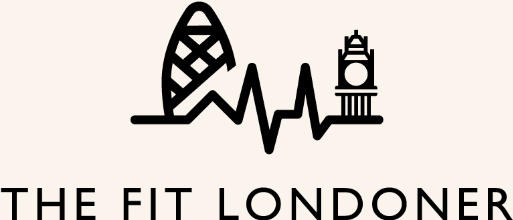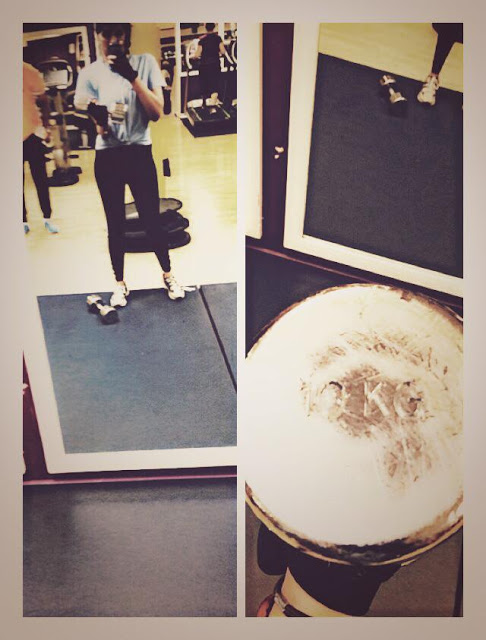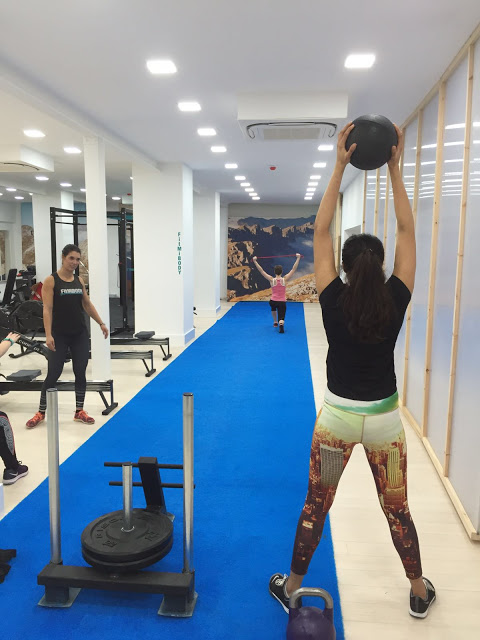

I’m really happy to see a lot of discussion has taken place after my first post in this mini series examining whether exercise is the new elitism. Clearly, it’s something that a lot of people feel strongly about and, it turns out, is a subject where a lot of people have hold sort of opinion. Whether you exercise or are a dedicated fan to a particular sport or fitness class/studio, you’re bound to have a view.
In this part of the series, I examine what the social media factor is and see what its contribution is to exercise and elitism. But firstly, I wanted to clarify something, as a few people made a similar point about running in my previous post. When I wrote about running, I was referring more about the increasing cost of entry fees for races. The example of park run was more of an example of nuanced details that exist in the fitness world, that we may not necessarily think about; my point about cost was more about entering races rather than running generally.

The rise in the popularity of social media has helped with the rise in the popularity of workouts and sweaty faces. No doubt about that. We’re embracing our sweat more than ever. Switching from heels to Nikes, make-up for sweat more than ever. Sweatstagram (aka Instagram) has enabled people to find workouts suitable for them – whether they want a workout at home, the hotel or the gym, whether they want a workout with Heinz baked beans tins and babies or barbells. We’re learning to also be creative with our workouts based on our location and what items we have. We’re learning to embrace our sweaty faces and our booties. In many ways, social media is encouraging us to aspire towards more healthy body shapes. Thank you Sweatstagram. All hail, Instagram.
As the saying goes, if you didn’t Instagram it, it didn’t happen. We say this with fondness and humour, but I think there is a dark truth behind this. Not everyone Instagrams their workouts (and you shouldn’t feel you have to) and in a way, I think for some people, seeing a constant stream of fitness-related Instagram posts can make them feel low or sick of the fitspo.
Is this stream of fitspo posts on the borderline of subtle peer pressure? Are we verging onto bragging about our gains or personal bests on social media? A fascinating question raised by one of the panellists at the talk I attended (mentioned here), was that would we still sign up for events-whatever they may be- if we had to sign confidentiality agreements? I.e. we weren’t allowed to talk about our training at all on social media.

Thanks to social media and us fitness bloggers, it is also helping to make more people aware of classes-new or old- and studios. Thanks to Sweatstagram, you may have discovered that there’s a studio hidden in a narrow road behind your offices. In turn they are making you aware of the values of exercise. Is that really a bad thing?
But, the fitness industry is not well policed. Whilst information is now more accessible than before, having access to too much information, is not a good thing. I you aren’t qualified or don’t have a lot of experience, it can be difficult to decipher what is good information and what is point blank rubbish. The language around sport can be elitist – using language such as ‘fartleks’ or ‘yassoo 800’ can alienate others. Whilst I understand where this view is coming from, you also have to consider who is that person’s targeted audience – bragging might not be their intention.
There is undoubtedly a rise in a global interest in fitness and we are still, clearly hungry for more. There are certain ways in which it has encouraged fitness to become elitist, but these are heavily outweighed by the positives. Instagram is helping to remove the barriers; the availability of free workouts and knowledge bombs, handed out by qualified personal trainers, is something we should grab onto and use to our advantage. But, at the same time, we must remain cautious. Not all of us fitness bloggers necessarily have the qualifications to hand out qualified advice. Your favourite fitspo may have a hot booty or look shredded af, and have 145,123 followers but that doesn’t mean they have the knowledge. Nevertheless, all hail social media.
What do you think about social media and its influence on exercise?